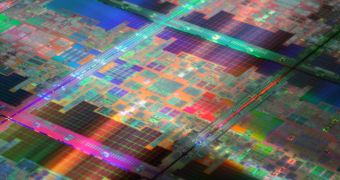It looks like the recent decision on Oracle's part to cease developing software for the Intel Itanium server platform ended up pushing a few buttons, especially on HP's side of the camp.
Questionable decisions on the IT market are definitely not all that uncommon, and it seems the latest one has sparked quite a furor on the server segment.
As some might have learned, Oracle recently revealed that it had decided to stop supporting the Intel Itanium platform.
HP was less than pleased, saying in a statement that Itanium will definitely last for quite some time.
HP sees this entire maneuver as Oracle's tactic intended to hinder competition and said it would continue with Itanium platforms and the HP-UX OS.
“We are shocked that Oracle would put enterprises and governments at risk while costing them hundreds of millions of dollars in lost productivity in a shameless gambit to limit fair competition,” said Dave Donatelli, executive vice president and general manager, Enterprise Servers, Storage and Networking, HP.
As a response to this implication, Oracle again came forth and said that it was its responsibility to inform its customers if a platform it doesn't own is nearing the end of its life. It even chose to challenge HP's reaction with some bluntness, so to speak, of its own.
"HP is knowingly withholding this information from our joint Itanium customers. While new versions of Oracle software will not run on Itanium, we will support existing Oracle/Itanium customers on existing Oracle products. In fact, Oracle is the last of the major software companies to stop development on Itanium," said Oracle.
In an effort to quell unwanted rumors, Intel's own CEO stepped in and said that multiple generations are in the works. Still, after this exchange, this might not be enough to calm the waters.
“Intel' s work on Intel Itanium processors and platforms continues unabated with multiple generations of chips currently in development and on schedule. We remain firmly committed to delivering a competitive, multi-generational roadmap for HP-UX and other operating system customers that run the Itanium architecture,” were the exact words.
The irony in all this is that, while HP will probably end up gaining some of Oracle's former customers, the latter might benefit from a similar phenomenon, according to some analysts.

 14 DAY TRIAL //
14 DAY TRIAL //